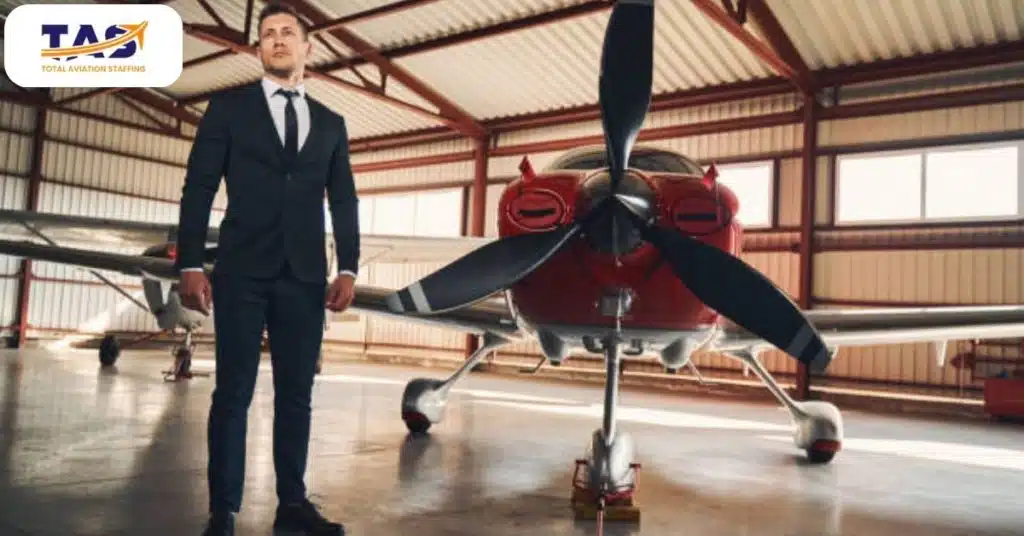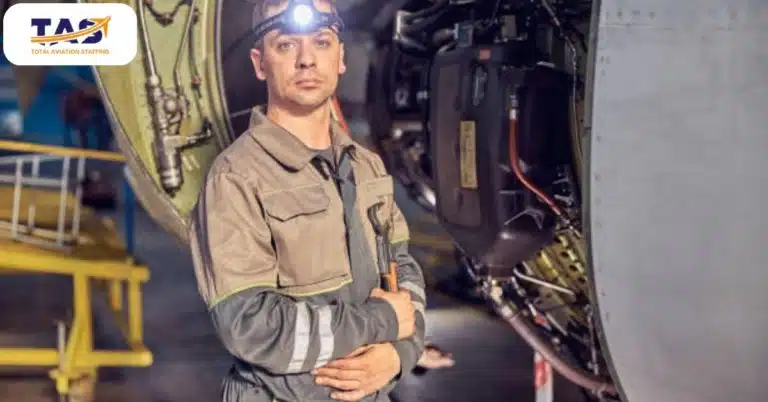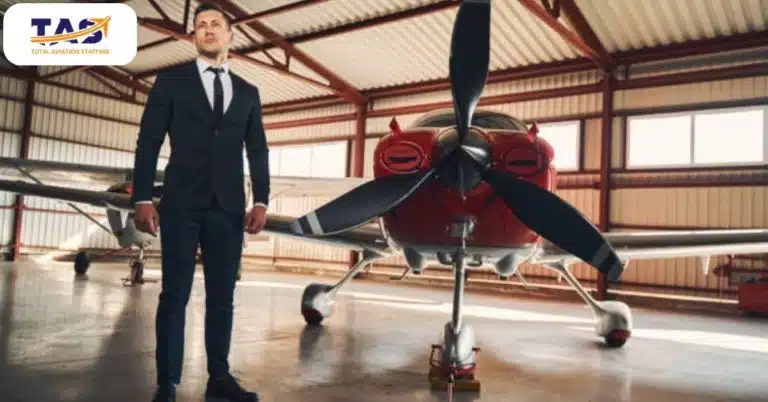The Role of a Maintenance Controller (A&P) Technician: What You Need to Know Before Applying

Maintenance Controllers are responsible for ensuring that aircraft are maintained and repaired according to FAA regulations and company procedures. They make important decisions about aircraft maintenance and work with a team of professionals to ensure the safety and reliability of aircraft. Before applying for this role, it’s important to have a clear understanding of the job description, required education, skills, and certifications, as well as the advantages and challenges of the role.
This blog post aims to provide all the necessary information about the role of a Maintenance Controller, helping readers determine if this is the right career path for them.
Job Description
The Maintenance Controller’s primary responsibility is to ensure that all aircraft maintenance activities are carried out in accordance with FAA regulations and company procedures. They work with maintenance personnel to troubleshoot and resolve issues, provide technical support, and ensure that all maintenance tasks are completed on time.
Maintenance Controllers are also responsible for coordinating maintenance activities with other departments and ensuring effective communication between team members. In addition, they must have strong leadership skills to manage a team of maintenance personnel and ensure that all work is completed to the highest standards of quality and safety.
It is essential for Maintenance Controllers to have a thorough understanding of FAA regulations and company procedures to ensure compliance and prevent any potential safety hazards.

Required Education, Skills, and Certifications
To become a Maintenance Controller, candidates must typically have a bachelor’s degree in aviation maintenance, engineering, or a related field. However, some employers may accept candidates with an associate degree or relevant work experience in lieu of a bachelor’s degree.
Essential skills and qualifications for a Maintenance Controller include strong communication and leadership skills, attention to detail, problem-solving ability, and the ability to work well under pressure. In addition, candidates should have experience working in aviation maintenance, preferably as an A&P mechanic, and possess a thorough understanding of FAA regulations and industry standards.
Certifications necessary for the role include an Airframe and Powerplant (A&P) license, which is required for all aviation maintenance personnel. Other certifications that may be beneficial include a Certified Maintenance and Reliability Professional (CMRP) certification or a Six Sigma Green Belt certification. These certifications demonstrate a candidate’s expertise in maintenance and reliability principles, as well as their commitment to continuous improvement in their field.

Salary and Career Outlook
According to salary data from Payscale, the average salary for a Maintenance Controller is around $85,000 per year. However, salaries can vary depending on factors such as location, industry, and years of experience.
The job outlook for Maintenance Controllers is positive, with steady demand for these professionals in the aviation industry. As the aviation industry continues to grow and evolve, the demand for qualified Maintenance Controllers is expected to increase. Additionally, there may be opportunities for Maintenance Controllers to advance to higher-level roles within their organizations, such as Director of Maintenance or other leadership positions.
In conclusion, becoming a Maintenance Controller can be a rewarding and challenging career choice for those with a passion for aviation maintenance and a desire to take on a leadership role. By obtaining the necessary education, skills, and certifications, candidates can position themselves for success in this field and enjoy a promising career outlook with potential for growth and advancement.

Advantages and Challenges of the Role
Becoming a Maintenance Controller can offer many advantages, including increased responsibility and leadership opportunities. However, there are also challenges that come with the role, such as navigating changing regulations and industry standards.
Advantages:
Increased responsibility and leadership opportunities
Ability to make important decisions regarding aircraft maintenance
Opportunity to work with a team of professionals and improve communication skills
Challenges:
Keeping up with changing regulations and industry standards
Managing a team of maintenance personnel
Maintaining ongoing education and training
Despite the challenges that come with the role, the advantages of becoming a Maintenance Controller make it a promising career choice for those with a passion for aviation maintenance and a desire to take on a leadership role. By staying up to date on industry changes and regulations and continuing to develop their skills and knowledge, Maintenance Controllers can position themselves for success in this field.

Tips for Success
To be successful as a Maintenance Controller, it’s important to have a strong foundation of experience and knowledge in aviation maintenance.
Here are some tips to help you succeed in this role:
Gain experience as an A&P Mechanic: Before pursuing a role as a Maintenance Controller, it’s important to have experience as an A&P Mechanic. This will provide a solid foundation of knowledge and skills in aviation maintenance.
Acquire additional education and certifications: Pursuing additional education and certifications can help you stand out as a candidate for the role of Maintenance Controller. Consider pursuing a bachelor’s degree in aviation maintenance or a related field, or obtaining certifications such as the Airframe and Powerplant (A&P) certificate.
Develop leadership and communication skills: As a Maintenance Controller, you will be responsible for leading and managing a team of maintenance personnel. Developing strong leadership and communication skills can help you excel in this role. Consider taking courses or workshops in leadership or communication, or seeking out mentorship opportunities with experienced professionals in the field.
By following these tips and continually working to improve your skills and knowledge, you can position yourself for success as a Maintenance Controller in the aviation industry.

In conclusion
We have explored the role of a Maintenance Controller in aviation maintenance, including the responsibilities of the position, required education and certifications, salary and career outlook, advantages and challenges of the role, and tips for success. Becoming a Maintenance Controller offers many advantages, including increased responsibility and leadership opportunities, but also requires a solid foundation of experience and knowledge in aviation maintenance, as well as strong leadership and communication skills.
Despite the challenges of the role, it can be a rewarding career path for those with a passion for aviation maintenance and a desire to take on a leadership role. By continually developing their skills and staying up to date on industry changes and regulations, Maintenance Controllers can position themselves for success in this field.
Are you ready to take your aviation career to the next level? Total Aviation Staffing has more than 30 years of experience connecting professionals with top aviation and aerospace companies across the United States. Whether you need help finding a job or building your resume, we are here for you every step of the way. Contact us today to learn more about our services and how we can help you achieve your career goals. Our team of aviation recruitment experts is ready to answer any questions you have and get you started on the path to success!
Visit Total Aviation Staffing today and take control of your future—it’s time to start flying high!
